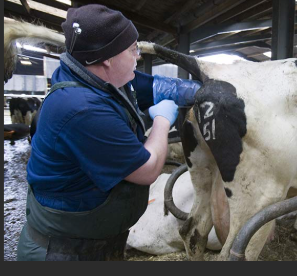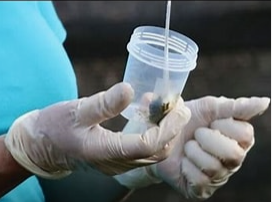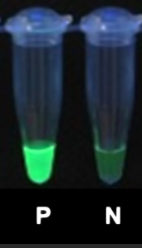Rapid Cattle Johne's Testing
Detect Johne's diseases quickly with our easy-to-use on-farm test for cattle using fecal samples.
Cattle Disease Testing
Quick and reliable disease detection tests for cattle, performed conveniently on your farm.


On-Farm Testing
Collect fecal samples and receive results within hours, ensuring herd health.
Fast Results
Get accurate disease detection results in just hours, not days, for your cattle.
Easy Sample Collection
Simple procedures for farmers to collect samples and test for diseases effectively.
Innovative Cattle Disease Detection Solutions
We provide fast, reliable testing products for cattle diseases, empowering farmers with on-farm solutions that deliver results in hours, ensuring the health of their herds.


150+
15
Trusted by Farmers
Proven Results
About our Johne's LAMP Assay
The LAMP assay (Loop-mediated Isothermal Amplification) is a molecular technique used to detect the presence of Mycobacterium avium subspecies paratuberculosis (MAP), the causative agent of Johne's disease in cattle. Unlike traditional PCR (Polymerase Chain Reaction), LAMP operates under constant temperature, which makes it simpler and more cost-effective in field or point-of-care settings. It can be used to detect MAP DNA from various sample types, including feces, blood, or tissue.
Here’s a general outline of how the LAMP assay works for Johne’s disease in cattle:
1. Sample Collection:
Typically, fecal samples are collected, as MAP is shed in the feces of infected animals. However, blood, tissue, and milk can also be used if multiple diagnostic methods being employed.
2. DNA Extraction:
The DNA is extracted from the collected sample with simplified extraction methods. The DNA preparation does not need to be of high purity to obtain accurate results.
3. LAMP Reaction Setup:
LAMP uses specific primers that target conserved regions of the MAP genome. These primers facilitate the amplification of the DNA under isothermal conditions (63°C).
The reaction mixture includes all required primers, DNA polymerase, nucleotides, and a fluorescent or colorimetric indicator that changes when amplification of the specific pathogenic region occurs.
4. Amplification Process:
The amplification happens in a single, constant temperature (unlike PCR, which requires thermal cycling).
The process is faster than traditional PCR, typically taking 30-60 minutes to complete, and the results are often visible with the naked eye if a colorimetric indicator is used.
5. Detection:
The presence of amplified DNA indicates a positive result for MAP infection. Fluorescent dyes or color-changing reagents make it easy to interpret the results without needing advanced equipment.
Benefits of LAMP for Johne's Disease Detection:
Speed: Faster than PCR, often delivering results in under an hour.
Simplicity: No need for expensive thermocycling machines; isothermal heating devices can be used.
Field-friendly: Can be used in remote areas or field settings without much specialized equipment.
Sensitivity: High sensitivity for detecting MAP DNA even at low concentrations or in young cattle.
Limitations:
It may not be as widely adopted or validated in all regions compared to more established tests (e.g., ELISA, PCR).
Interpretation of results can sometimes be tricky if there is cross-contamination or non-specific amplification.
In summary, the LAMP assay provides an efficient and rapid diagnostic tool for Johne’s disease in cattle, especially valuable for areas where conventional lab-based tests are impractical.






Customer Feedback
Hear from our satisfied farmers about our innovative cattle testing service.
This test is a game changer! Fast results helped us manage our herd effectively.
John Smith
The on-farm testing is incredibly convenient. We received results in just hours!
Emily Davis
Rivertown, WI
★★★★★
★★★★★
Springfield, MO
Contact Us Today
Reach out for inquiries about our cattle disease testing service. We're here to help farmers improve herd health efficiently.
Support
507-272-3174
Info
ShellyLWhelan@Gmail.com
Contacts
ShellyLWhelan@gmail.com
(507) 306-3929
